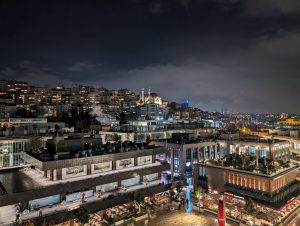Tourism-reliant Caribbean nations that have already closed their borders to visitors are extending on-island restrictions to halt COVID-19’s spread. St. Kitts & Nevis’ governor declared a state of emergency effective March 28, with citizens and residents subject to a 7 p.m. to 5 a.m. curfew for the next 14 days.
In addition, the Bahamas’ prime minister has issued an emergency order closing the territory’s air and seaports, placing residents on a 24-hour curfew and advising that international visitors in the territory “should be prepared to stay for an indefinite period of time.”
Meanwhile, Cayman Islands officials threatened to close public beaches after residents flouted “shelter in place” regulations.
The expanded restrictions in COVID-19 virus,” said Dr. Timothy Harris, the dual-island nation’s governor.
Trending Now
“While it is highly uncommon to restrict free movement, this is an unprecedented time and the dangers that confront the federation demand that government takes serious actions to confront and overcome this pandemic,” Harris said.
St. Kitts & Nevis officials earlier covid-19.html” target=”_self” rel=”nofollow noopener noreferrer”>closed the country’s borders to commercial air and sea vessels through April 7 and advised travelers “to contact their travel advisor, travel provider, hotel and/or airline for information about policies for rescheduling trips.”
In the Bahamas, officials issued an emergency order closing Nassau’s Lynden Pindling International Airport to all flights effective March 27 along with all air and seaports throughout the Bahamas archipelago. The territory’s public beaches and markets are closed and residents are subject to social distancing measures and movement restrictions.
The Cayman Islands has 12 confirmed COVID-19 cases. Emphasizing that “Staying home saves lives,” Alden McLaughlin, the territory’s governor, last week instituted an “an essential partial lockdown,” that included a 24-hour curfew imposed March 27, followed by a 7 p.m. to 5 a.m. “soft” curfew through April 3. Non-essential businesses are closed, most civil servants are working from home and officials “[are] encouraging the vast majority of workers to stay at home.”
Yet Cayman officials have also found it necessary to warn citizens to abide by social distancing recommendations. After sunbathers crowded Cayman beaches within hours of the lifting of the 24-hour curfew, McLaughlin warned the next day he would close public beaches if residents did not comply with shelter-in-place regulations.
“If this present construct is not going to work, we are going to have to make adjustments to it, and that is going to mean that it is going to become necessarily more restrictive,” McLaughlin said in a Cayman Compass report.




















